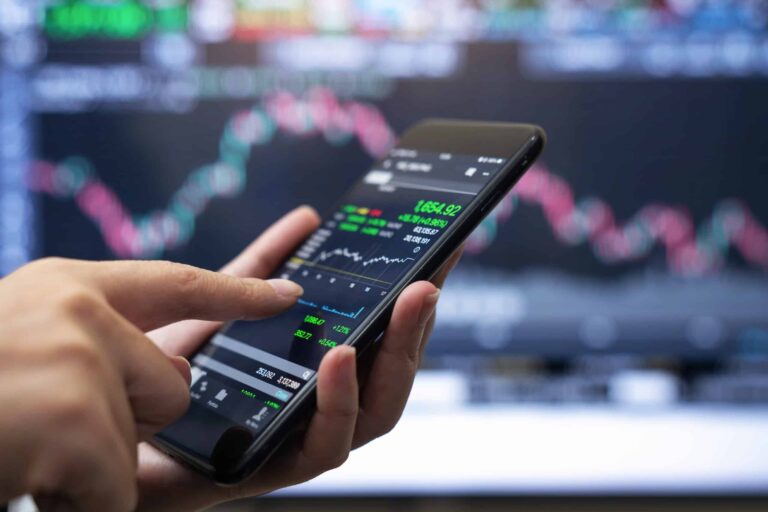Last updated Jun. 26, 2023 by Charles Zemub
What’s the Difference Between VTSAX vs. VTI, and Which Should You Pick?
Do you know that VTSAX is completely different from VTI? When it comes to choosing stock options, some investors become confused about the best stock option to choose from. However, most investors who understand the market usually use VTSAX or VTI. What could be so special about these stock options?
Before a stock investor concludes choosing a particular stock option, the person must be highly motivated by something. But you must compare the difference between these stock options before deciding on the best one to work with.
In this article, you will learn about the difference between VTSAX and VTI and decide which to pick.
What is VTSAX?
Vanguard Total Stock Market Index Fund (VTSAX) was created as a mutual fund to offer deeper understanding to investors hoping to understand the small-cap, midcap, and large-cap value stocks and growth as traded daily on New York Stock Exchange (NYSE) and NASDAQ.
Through VTSAX, investors are able to pioneer index funds, which involve the collection of different companies. This implies that investors’ funds are not just channeled into one stock.
Instead, the VTSAX enables each investment fund to be distributed into stocks of different companies. Hence, investors stand a chance to enjoy more benefits from trading with VTSAX.
What is VTI?
The Vanguard Total Stock Market ETF (VTI), focuses on tracking the performance of index funds and measuring the investment benefits of the entire stock market. Unlike VTSAX, the VTI was created as an exchange-traded fund (ETF) to give investors an additional advantage in making a successful investment decision for the stock market.
What is VOO?
Vanguard’s VOO exists as an exchange-traded fund (ETF), that focuses on monitoring the S&P 500 index by claiming ownership to the entire equities found within the S&P 500.
Generally, VOO is a fund that specifically invests in the stock of some biggest companies in the USA. Over the years, Vanguard’s VOO has gained popularity to become one of the most mentioned ETFs.
What stocks are in VTSAX?
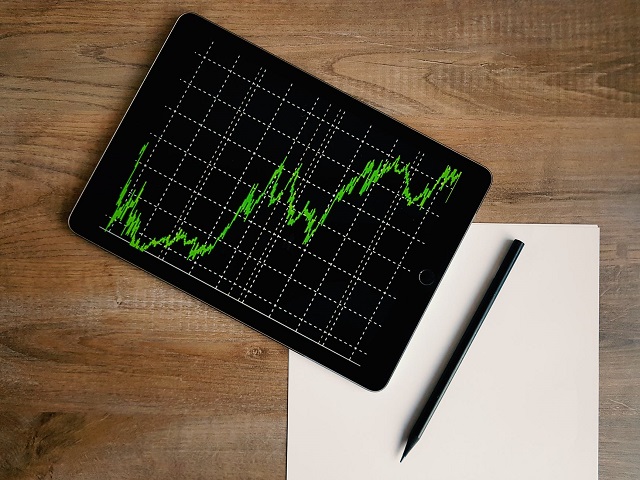
Currently, there are about 4109 stocks in VTSAX. But the top 100 best stocks in VTSAX consist of the following.
- Apple Inc. with 442,969,284 shares and a market value of $78,658,055,760.
- Microsoft Corp. with 213,382,662 shares and a market value of $71,764,856,884
- Amazon.com Inc. with 12,251,420 shares and a market value of $40,850,399,763
- Alphabet Inc. Class A with 8,547,474 shares and a market value of $24,762,374,077
- Tesla Inc. with 22,833,680 shares and a market value of $24,130,176,350
- Facebook Inc. Class A with 67,251,688 shares and a market value of $22,620,105,259
- Alphabet Inc. Class C with 7,677,584 shares and a market value of $22,215,780,287
- NVIDIA Corp. with 67,499,669 shares and a market value of $19,852,327,650
- Berkshire Hathaway Inc. Class B with 48,225,937 shares and a market value of $14,419,555,163
- UnitedHealth Group Inc. with 26,768,259 shares and a market value of $13,441,413,574
- JPMorgan Chase & Co. with 83,988,235 shares and a market value of $13,299,537,012
- Johnson & Johnson with 74,819,509 shares and the market value of $12,799,373,405
- Home Depot Inc. with 29,677,684 shares and a market value of $12,316,535,637
- Procter & Gamble Co. with 68,774,496 shares and a market value of $11,250,132,056
- Visa Inc. Class A with 47,229,793 shares and a market value of $10,235,168,441
- Pfizer Inc. with 159,524,035 shares and a market value of $9,419,894,267
- Mastercard Inc. Class A with 24,931,683 shares and a market value of $8,958,452,336
- Bank of America Corp. with 197,709,410 and a market value of $8,796,091,651
- Walt Disney Co. with 51,659,466 shares and a market value of $8,001,534,689
- Accenture plc Class A with 18,664,148 shares and a market value of $7,737,222,553
- Adobe Inc. with 13,522,501 shares and a market value of $7,668,069,417
- Netflix Inc. with 12,588,931 shares and a market value of $7,584,075,592
- Thermo Fisher Scientific Inc. with 11,199,012 shares and a market value of $7,472,428,767
- Broadcom Inc. with 11,113,202 and a market value of $7,394,835,743
- Exxon Mobil Corp. with 120,319,130 and a market value of $7,362,327,565
- Costco Wholesale Corp. with 12,557,012 and a market value of $7,128,615,712
- Abbott Laboratories, with 50,255,433 shares and a market value of $7,072,949,640
- Cisco Systems Inc./Delaware with 107,877,184 shares and a market value of $6,836,177,150
- PepsiCo Inc. with 39,294,953 shares and a market value of $6,825,926,286
- AbbVie Inc. with 50,244,447 shares and a market value of $6,803,098,124
- Eli Lilly & Co. with 24,468,610 shares and a market value of $6,758,719,454
- salesforce.com Inc. with 26,432,252 shares and a market value of $6,717,228,201
- Coca-Cola Co. with 110,482,879 shares and a market value of $6,541,691,266
- Comcast Corp. Class A with 129,584,186 shares and a market value of $6,521,972,081
- Chevron Corp. with 54,784,484 shares and a market value of $6,428,959,197
- PayPal Holdings Inc. with 33,392,235 shares and a market value of $6,297,107,676
- NIKE Inc. Class B with 36,315,359 shares and a market value of $6,052,680,885
- Danaher Corp. with 18,278,949 shares and a market share of $6,013,957,010
- Intel Corp. with 115,586,332 shares and a market value of $5,952,696,098
- QUALCOMM Inc. with 31,831,280 shares and a market value of $5,820,986,174
- Walmart Inc. with 39,624,211 shares and a market value of $5,733,227,090
- McDonald’s Corp. with 21,236,707 shares and a market value of $5,692,924,045
- Verizon Communications Inc. with 107,366,928 shares and a market value of $5,578,785,579
- Merck & Co. Inc., with 71,790,103 shares and a market value of $5,501,993,494
- Wells Fargo & Co. with 113,321,790 shares and a market value of $5,437,179,484
- NextEra Energy Inc. with 55,764,274 shares and a market value of $5,206,152,621
- Intuit Inc., with 8,047,618 shares and a market value of $5,176,388,850
- Linde plc with 14,543,767 shares and a market value of $5,038,397,202
- AT&T Inc. with 202,950,408 shares and a market value of $4,992,580,037
- Lowe’s Cos. Inc. with 19,148,036 shares and a market value of $4,949,384,345
- Texas Instruments Inc. with 26,246,724 shares and a market value of $4,946,720,072
- Advanced Micro Devices Inc. with 34,321,894 shares and a market value of $4,938,920,547
- Union Pacific Corp. with 18,270,664 shares and a market value of $4,602,928,382
- United Parcel Service Inc. Class B with 20,722,276 and a market value of $4,441,612,638
- Philip Morris International Inc. with 44,245,226 shares and a market value of $4,203,296,470
- Honeywell International Inc. with 19,564,783 shares and a market value of $4,079,452,903
- Oracle Corp. with 46,616,042 shares and a market value of $4,065,385,023
- Applied Materials Inc. with 25,662,203 shares and a market value of $4,038,204,264
- Morgan Stanley, with 40,798,842 shares and a market value of $4,004,814,331
- Medtronic plc, with 38,220,866 shares and a market value of $3,953,948,588
- Bristol-Myers Squibb Co. with 63,083,990 shares and a market value of $3,933,286,777
- Starbucks Corp. with 33,341,115 shares and a market value of $3,899,910,222
- CVS Health Corp. with 37,517,401 shares and a market value of $3,870,295,087
- American Tower Corp. with 12,942,885 shares and a market value of $3,785,793,863
- Charles Schwab Corp. with 43,757,082 shares and a market value of $3,679,970,596
- ServiceNow Inc. with 5,655,685 shares and a market value of $3,671,161,690
- Raytheon Technologies Corp. with 42,537,683 shares and a market value of $3,660,792,999
- Intuitive Surgical Inc. with 10,152,895 shares and a market value of $3,647,935,174
- Goldman Sachs Group Inc. with 9,533,979 shares and a market value of $3,647,223,666
- Amgen Inc. with 16,008,641 shares and a market value of $3,601,463,966
- BlackRock Inc. with 3,885,635 and a market value of $3,557,531,981
- Prologis Inc. with 21,022,435 shares and a market value of $3,539,337,157
- International Business Machines Corp. with 25,486,833 shares and a market value of $3,406,570,099
- Citigroup Inc. with 56,391,721 and a market value of $3,405,496,031
- Boeing Co. with 16,703,485 shares and a market value of $3,362,745,600
- Zoetis Inc., with 13,446,588 shares and a market value of $3,281,370,870
- S&P Global Inc. with 6,849,223 shares and a market value of $3,232,353,810
- Anthem Inc. with 6,898,478 shares and a market value of $3,197,720,492
- Caterpillar Inc. with 15,374,036 and a market value of $3,178,428,203
- Target Corp. with 13,616,463 shares and a market value of $3,151,394,197
- Micron Technology Inc. with 31,792,741 shares and a market value of $2,961,493,824
- Automatic Data Processing Inc. with 11,975,413 shares and a market value of $2,952,897,338
- General Electric Co. with 31,211,377 shares and a market value of $2,948,538,785
- 3M Co. with 16,376,884 shares and the market value of $2,909,025,905
- Lam Research Corp. with 4,001,637 and a market value of $2,877,777,249
- Booking Holdings Inc. with 1,166,961 shares and a market value of $2,799,807,840
- Deere & Co. with 7,931,030 shares and the market value of $2,719,470,877
- ConocoPhillips, with 37,485,339 shares and a market value of $2,705,691,769
- American Express Co. with 16,510,377 shares and a market value of $2,701,097,677
- Analog Devices Inc. with 15,273,478 shares and a market value of $2,684,619,228
- Mondelez International Inc. Class A with 39,640,610 shares and a market value of $2,628,568,849
- Snowflake Inc. Class A with 7,696,609 shares and a market value of $2,607,226,299
- Gilead Sciences Inc. with 35,651,267 and a market value of $2,588,638,497
- Stryker Corp. with 9,648,803 shares and a market value of $2,580,282,898
- Crown Castle International Corp. with 12,282,528 shares and a market value of $2,563,854,895
- Blackstone Group LP Class A with 19,521,962 shares and a market value of $2,525,946,663
- Marsh & McLennan Cos. Inc. with 14,348,153 shares and the market value of $2,493,995,954
- Moderna Inc. with 9,794,908 shares and a market value of $2,487,710,734
- Altria Group Inc. with 52,205,320 shares and a market value of $2,474,010,115
- TJX Cos. Inc. with 32,467,240 shares and a market value of $2,464,912,861
What companies are in VTSAX?

The companies in VTSAX are 4109, and the following are the first 100:
- Apple Inc.
- Microsoft Corp.
- Amazon.com Inc.
- Alphabet Inc. Class A
- Tesla Inc.
- Facebook Inc. Class A
- Alphabet Inc. Class C
- NVIDIA Corp.
- Berkshire Hathaway Inc. Class B
- UnitedHealth Group Inc.
- JPMorgan Chase & Co.
- Johnson & Johnson
- Home Depot Inc.
- Procter & Gamble Co.
- Visa Inc. Class A
- Pfizer Inc.
- Mastercard Inc. Class A
- Bank of America Corp.
- Walt Disney Co.
- Accenture plc Class A
- Adobe Inc.
- Netflix Inc.
- Thermo Fisher Scientific Inc.
- Broadcom Inc.
- Exxon Mobil Corp.
- Costco Wholesale Corp.
- Abbott Laboratories
- Cisco Systems Inc./Delaware
- PepsiCo Inc.
- AbbVie Inc.
- Eli Lilly & Co.
- salesforce.com Inc.
- Coca-Cola Co.
- Comcast Corp. Class A
- Chevron Corp.
- PayPal Holdings Inc.
- NIKE Inc. Class B
- Danaher Corp.
- Intel Corp.
- QUALCOMM Inc.
- Walmart Inc.
- McDonald’s Corp.
- Verizon Communications Inc.
- Merck & Co. Inc.
- Wells Fargo & Co.
- NextEra Energy Inc.
- Intuit Inc.
- Linde plc
- AT&T Inc.
- Lowe’s Cos. Inc.
- Texas Instruments Inc.
- Advanced Micro Devices Inc.
- Union Pacific Corp.
- United Parcel Service Inc. Class B
- Philip Morris International Inc.
- Honeywell International Inc.
- Oracle Corp.
- Applied Materials Inc.
- Morgan Stanley
- Medtronic plc
- Bristol-Myers Squibb Co.
- Starbucks Corp.
- CVS Health Corp.
- American Tower Corp.
- Charles Schwab Corp.
- ServiceNow Inc.
- Raytheon Technologies Corp.
- Intuitive Surgical Inc.
- Goldman Sachs Group Inc.
- Amgen Inc.
- BlackRock Inc.
- Prologis Inc.
- International Business Machines Corp.
- Citigroup Inc.
- Boeing Co.
- Zoetis Inc.
- S&P Global Inc.
- Anthem Inc.
- Caterpillar Inc.
- Target Corp.
- Micron Technology Inc.
- Automatic Data Processing Inc.
- General Electric Co.
- 3M Co.
- Lam Research Corp.
- Booking Holdings Inc.
- Deere & Co.
- ConocoPhillips
- American Express Co.
- Analog Devices Inc.
- Mondelez International Inc. Class A
- Snowflake Inc. Class A
- Gilead Sciences Inc.
- Stryker Corp.
- Crown Castle International Corp.
- Blackstone Group LP Class A
- Marsh & McLennan Cos. Inc.
- Moderna Inc.
- Altria Group Inc.
- TJX Cos. Inc.
How much Dividend does VTSAX pay?
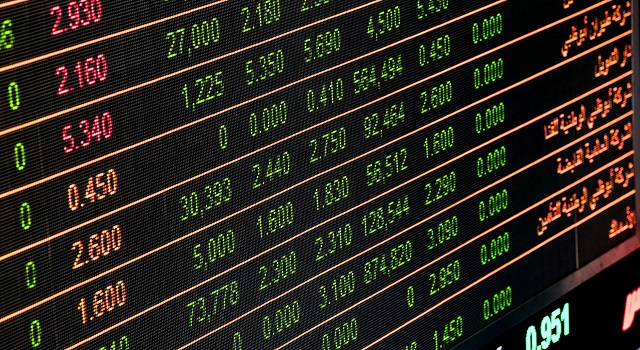
The amount of dividends paid under VTSAX often varies with time. The dividend yield in VTSAX is determined by dividing the sum of the company’s annual dividends per share by the current price share.
As of February 11th, 2022, the VTSAX dividend is valued at 1.30%. This amount may likely change over time.
What’s the Difference between VTSAX vs VTI?
Since you have learned about the benefits of VTSAX and VTI, you should also learn their differences to help you conclude your investment decisions. If you want to make wise investments and succeed with your great plans, you must pay attention to every close detail to see how to increase your chances of attaining success.
So what’s the difference between VTSAX vs VTI, and which one should you pick? The following comparison will help you decide on how to proceed with your investments.
VTSAX exists as an Index Fund, but VTI is an ETF
One of the common differences between these two stock options is that VTSAX is an index fund, while VTI exists as an Exchange Traded Fund. Under VTSAX, an investor can decide to invest in a particular list of securities.
However, the investors have to make certain considerations before proceeding with this investment decision. An example of this list of securities includes stocks of S&P 500 listed companies.
Under VTI, the exchange-traded fund involves shares sold on an exchange, a basket of securities, and other numerous benefits the investors can gain. Unlike VTSAX’s index fund, ETFs shared are often traded for a whole day at prices that alter depending on the demand and supply chain.
As an investor, you must decide on these stock options based on your intention and investment goals.
VTSAX has a Minimum investment cost, while VTI doesn’t
VTSAX has a minimum investment of $3000. This implies that you must be financially buoyant to get started with investing in this stock option. $3,000 may not appear like a huge investment cost to the rich or high middle class; however, it is a big deal to investors with a smaller budget.
When you cannot afford $3,000 to invest in VTSAX, you may consider going for VTI. So what is the minimum investment cost for VTI? Unlike VTSAX, VTI has no minimum investment cost.
Once you are willing to invest, you can get started with any amount. Since VTI is not limited to minimum investment, smart investors with a smaller budget can embrace the stock market through this option and find their stand with time.
But if you have the money, you may consider going for VTSAX. According to several sources, VTSAX has been in existence for more than 20 years and has made over 232% of total returns to investors. Hence, if you are highly impressed by this performance analysis, you should consider VTSAX.
VTI is still a good choice to put into consideration. Hence, if you are considering the minimum investment cost before concluding, VTI should be your choice of investment.
VTSAX’s Tax-cost ratio is greater than VTI’s

The tax cost ratio is the amount of return made on an investment lowered by the taxes paid by the investors on distributions. These distributions include capital gains, stock, and bond dividends.
Hence, the tax cost ratio determines each investment option’s tax effectiveness. The tax-cost ratio of VTSAX is estimated to be 0.70%, while the tax-cost ratio of VTI is 0.49%.
Comparing the tax-cost ratios of both options, you will realize that the VTSAX has 0.21 percent more post-tax returns than the VTI. From this estimation, you can observe that the VTI is more tax-effective than the VTSAX.
As a smart investor, you should consider the tax-cost ratio before making any investment decision. When you pay more tax while making your investment, your chances of profiting from such an investment decision will be reduced drastically.
Hence, you must be watchful to ensure you are safer while making your investment decisions. Hence, if you are considering a task, VTI should be your choice of stock investment.
Automatic Investments and Withdrawals
Another important factor you should consider in stock investment is your ability to invest automatically and withdraw without stress. Automatic investments have become a top trend in stock investments today.
Investors have taken advantage of this new opportunity to reach a greater milestone in their stock investment. But why is automatic investment important?
Unlike other investment options, automatic investment helps cover manual investment’s loopholes. It makes the process easier and helps investors to earn more money from their investments.
When comparing VTSAX vs. VTI on automatic investment, you will realize that VTSAX supports automatic investment. However, VTI is not in support of this. But VTI can only back the automatic investment with M1 Finances.
What is the difference between VTSMX and VTSAX?
VTSAX and VTSMX may look alike on the surface. However, if you dig a little bit beneath the surface, you will come to realize the unique difference between them.
Their differences actually gave them benefits that are attractive to investors. But what is the difference between VTSMX and VTSAX? The difference between these types of stocks consists of the following:
Expense Ratio
When you compare the expense Ratio between VTSAX and VTSMX, you will discover a great difference between the two. The VTSAX has a 0.04% expense ratio, which is an excellent value to its 4109 holdings.
However, VTSMX has a 0.14% expense ratio. This value is considered to be below. However, investors still have a lot of benefits to gain from making such an investment decision.
Share Class
Minimum Investment
The share class of VTSAX is not the same as the share class of VTSMX. VTSAX has an Admiral share fund which is different from the regular share funds. But VTSMX has an Investor Share Fund, one class lower than the Admiral Shares.

The minimum investment of VTSAX is $3,000. This implies that middle-class investors can grab the opportunity and invest their money wisely. Unlike VTSAX, the minimum investment of VTSMX usually begins from $10,000. Sometimes, VTSMX is usually closed to investors with small investment costs.
Availability
VTSAX is available and open to new investors searching for new opportunities in the stock market. However, VTSMX is closed to new investors. This option is only available to returning investors whose investments have been running actively on the stock market.
GOOD READ: 12 compound interest accounts (12 investment success stories)
Is VTSAX a good investment?
The VTSAX is a mutual fund that covers greater parts of the stock market. Investors under this category usually stand the chance of benefiting from its average long-term returns. Since there are 4109 security holdings under the VTSAX, investors will not be exposed to the risk of losing their investments if any company goes bankrupt.
Hence, VTSAX is a good investment option that will give you solid returns over time. VTSAX is also open to new investors who are just getting started with the stock market.
Which Index does VTSAX follow?
The VTSAX monitors the CRSP U.S. Total Market Index to give investors exposure to the entire U.S. stock market. As a result of its genuine means of monitoring the U.S. stock market, millions of investors have entrusted billions of dollars under this scheme.
The VTSAX index virtually covers the entire U.S. investible stocks to allow investors to take advantage of the market and grow their investments as well.
How can I buy VTSAX in Canada?
Most investors living in Canada are also interested in investing in Vanguard stocks. However, they always encounter difficulty in finally finding their investment option. In case you don’t know, Vanguard exists in Canada.
But the issue is that you cannot open an account directly via its Canadian website, Vanguardcanada.ca. The good news is that you can buy a list of Vanguard Index ETFs in Canada. But if you want to buy VTSAX in Canada, you must make good decisions to guide you through.
If you want to buy VTSAX in Canada, you should follow this strategy to make a successful investment.
Find a third-Party Financial Advisor.
When you hope to actualize success in buying VTSAX from Canada, you must find a third-party financial advisor or an online brokerage account to proceed with your investment.
Some of the best DIY brokerage companies to work with within Canada include Wealthsimple Trade and Questrade. Unlike some brokerage businesses, these Canadian-based brokerage companies do not sell their products to companies.
Instead, they offer services from other companies like Vanguard, share, and more.
Review their policies
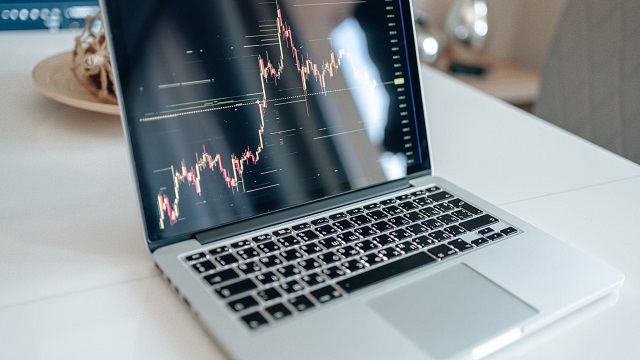
Before you conclude working with any financial advisor, you should review their policies to ensure that you are on the right path. You are more likely to make mistakes when you don’t review the company’s policies before proceeding with your investment. The information you acquire from this policy will determine the success of your stock investment.
How can I buy VTSAX in Singapore?
When you live in Singapore, you can also buy Vanguard stocks and earn from your investment choices, just like other investors from around the globe.
Since you live outside the U.S., your procedures for signing up with Vanguard will be different and unique. Follow these procedures to buy VTSAX in Singapore.
Online Brokerage
When you are in Singapore, you need to consider working with online brokerage companies to ensure you achieve a successful investment. The best online brokerage companies to work with include POEMS, FSM, DBS Vickers, and many others.
Review Policies and Buy stocks
When you find a suitable online brokerage to work with, you have to purchase your Vanguard stocks through their platforms.
How can I buy VTSAX in Australia?
Like in most parts of the world, you cannot invest directly in Vanguard stocks from Australia. However, you can invest in VTSAX through any online brokerage account. Follow these procedures to buy Vanguard stocks.
Choose the best online brokers.
Some of the best online broker platform work includes Go Market, Etoro, Self Wealth, and many others. Once you choose a broker, create your brokerage account and complete the application process.
Find your brokerage account.
You can fund your brokerage account through PayPal, bank transfer, or debit card. Keep in mind that you will need your tax file number, ID, and other personal details to create a brokerage account on any brokerage platform.
Find the list of VTSAX Australian Shares.
Since your goal is to buy VTSAX shares from Australia, you should find the shares on the platform. If you cannot find it, you may consider checking another broker to increase your chances of finding the right shares to buy.
Buy the shares
Once you find the shares proceed to pay for them. You can decide on how many to buy and monitor your investment afterward.
Can I buy VTSA from India?
In India, you are expected to complete your purchase through any online brokerage account. Most Indian investors prefer to complete their Vanguard investments through Winvesta and other broker platforms.
Once you create an account on any of these platforms, you can review their terms and conditions before funding your account and buying shares.
Why is VTSAX cheaper than VTI?
VTSAX has an expense ratio of 0.04%, while VTI has an expense ratio of 0.03%. This implies that investors will likely pay more than $1 for every $10,000 they invest in VTSAX. This fee paid by investors is known as the management fee.
This implies that VTI is actually cheaper as it does not have a minimum investment cost. New investors under VTSAX are expected to begin with a minimum investment of $3,000.
How to Buy VTSAX Stock?
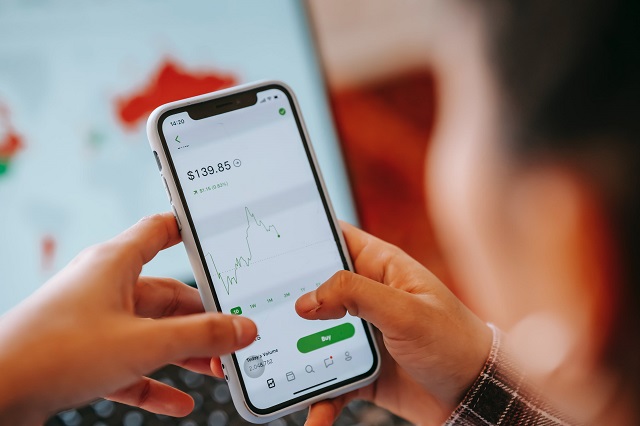
When buying VTSAX stocks, many investors are often confused about making the right decision. But if you want to make a successful investment, you must develop a creative plan on how to buy VTSAX stocks.
Keep in mind that your location will determine if you will successfully buy stock directly or through a brokerage account. Follow these procedures to buy VTSAX Stock without errors.
Buy directly or from a brokerage account.
If you live within the U.S., you can buy VTSAX directly from the Vanguard website. But when you live outside the U.S., you can buy from a brokerage company operating actively within your location.
This brokerage will give you the license and the best stock option to consider. However, the online broker must deal with mutual funds before you can be allowed to trade your VTSAX stock with them.
Verify your Identity
Whether you are signing up directly or through a brokerage account, you are required to verify your identity before taking any other further action. You can verify your account through credible information and your personal details such as your ID and others.
Fund your account
Once you have created an account, proceed to fund your account. Funding your account is quite simple, as you can accomplish this via an electronic transfer, PayPal, or Debit Card.
Most third-party brokerage platforms have various payment forms to give their users several options to trade successfully and achieve success.
Find VTSAX stocks to Buy
When your account is set up and well-funded, the next step is to find VTSAX stocks to buy. You can find these stocks using the fund name. Preferably, you can also use ticker symbols to find them.
Most online brokerage companies allow their users to buy and sell their stocks without going through a complex system. To complete the purchasing process, you will have to enter the number of shares you intend to buy and complete your order.
What is VTSAX Holdings?
VTSAX Holdings consist of companies whose stocks are listed in VTSAX stocks. Investors are allowed to access these VTSAX holdings and invest in mutual funds hoping to accomplish success through investment strategies.
The top VTSAX Holding consists of Apple Inc., Mircosoft Corp., Amazon.com Inc., Alphabet Inc., Tesla Inc., Meta Platforms Inc., NVIDIA Corp., Berkshire Hathaway Inc., and UnitedHealth Group Inc.
What is VTSAX’s stock price?
The VTSAX stock price is the exact price at which VTSAX is traded in the stock market. As of the time of writing this article, the VTSAX stock price is at $108.53, which is 5.12% down from its average price.
What is VTSAX Vanguard?
VTSAX Vanguard is a stock investment that allows investors to invest in thousands of companies at the same time. Instead of putting your money in only one company, VTSAX Vanguard will allow you to invest in numerous companies without risking your investment in the future.
What is VTSAX Expense Ratio?
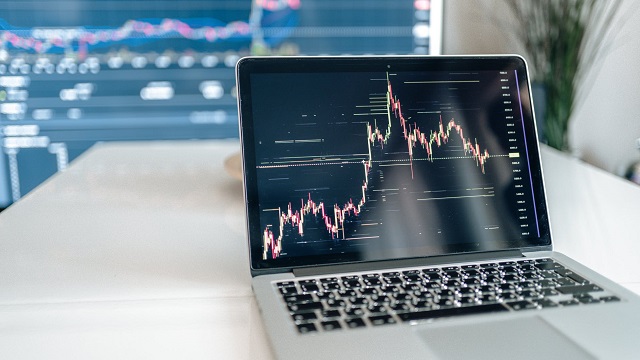
The VTSAX expense ratio is 0.04%. This implies that investors can enjoy this low expense ratio while investing in their favorite Vanguard stock option.
What is VTSAX Performance?
Since VTSAX was founded in 1992, it has performed exceptionally greatly over time. In fact, millions of investors have developed a unique trust in VTSAX because of its past performance.
Currently, the VTSAX Performance is still highly rated among investors in the stock market. If you want to invest in VTSAX, keep in mind that you are making the right decision with no regret.
How much tax to pay for VTSAX yield?
In most cases, you are not expected to pay tasks for VTSAX yield until you begin to earn. The tax rates you are required to pay each time highly depend on your investment income. This implies that the amount you earn will likely determine how many tasks you are going to pay for.
Most companies under VTSAX are corporations. Hence, if you eventually hold their stocks for more than 3 months, you will be taxed based on the lower capital gains rate. This implies that if your annual income is estimated at $100k or more, you will be taxed at the rate of $200 or more.
VTSAX vs. VTI vs. VOO
When you compare VTSAX vs. VTI vs. VOO, you will easily conclude on the best stock option to purchase. Their differences consist of the following:
Minimum investment
VTSAX requires a minimum cost of $3,000. This amount may not be friendly to new investors hoping to reach a greater height with a smaller budget. VTI has no minimum investment and is open to new investors.
VOO does not have a minimum investment, and it allows investors to access over 500 best holdings.
Expense ratio
The Expense ratio of VTSAX is estimated at 0.04%. Since VTI and VOO fall under ETFs, their expense ratio is estimated at 0.03%.
Cap Stocks
VTSAX is created for small-cap, mid-cap, large-cap, and value stocks. VTI also services small, mid, and large-cap stocks. However, VOO is meant for only large-cap stocks.
VTSAX vs VTI for both IRA
When you want to buy either VTSAX or VTI in an IRA account, you may become confused about making the right decision. However, this solution will help you provide a realistic solution to make a quiet conclusion.
Automatic Investment
Most brokerage companies offer automatic investments for investors with mutual funds. However, when considering ETFs, you may not enjoy this benefit.
When investing from your IRA account, you should consider the automatic investment as it will determine the success of your investment decisions.
Minimum investment
VTSAX is open to investors with a minimum investment cost of $3000. However, investors can invest in VTI with any investment cost, as it has no minimum investment cost.
Expense Ratio
Both VTSAX and VTI have low expense ratios. However, VTI has a 0.03% expense ratio, which gives it some advantage over VTSAX, which has a 0.04% expense ratio.
Is the VTSAX account taxable?

The VTSAX account is taxable since it was created as a great tax-efficient fund. However, you don’t owe tax until you begin to earn. The taxable amount highly depends on how much you have in your account.
VTSAX vs. VFIAX
Despite the close resemblance between VTSAX and VFIAX, some difference still exists between these two vanguard stocks. The difference between Vanguard Total Stock Market Index Fund (VTSAX) and Vanguard’s S&P 500 Index Fund (VFIAX) includes the following.
Individual Stocks
VTSAX consists of 4109 individual stocks, while VFIAX is made up of 509 individual stocks. Hence, the differences between each of their individual stocks cannot be compared.
Dividend Yield
VTSAX has a dividend yield of 1.82%, while VFIAX has a dividend yield of 1.93%. Hence, there is a 0.11% difference between the two. From this estimation, you will realize that the VFIAX has a greater dividend yield.
Cap Stock
The top ten VFIAX holdings are mostly highly-rated large stocks. However, about 75% of VTSAX stocks are small to mid-cap stocks, which have minimal impact on rating the stocks.
Can I convert VTSAX to VTI?
VTSAX can be converted to VTI. During the conversion process, your tax lots will be maintained. However, you will have to contact Vanguard to execute this conversion for you.
Keep in mind that Vanguard can only assist you in converting mutual funds to ETFs and not the other way around. So think carefully before taking this action.
Is converting VTSAX to VTI a taxable event?
The conversion of VTSAX to VTI is not taxable since the conversation amount is not always meaningful to the platform. However, Vanguard will still maintain the tax lots (i.e., equivalent cost basis and purchasing date) while converting your VTSAX shares to VTI.
Which Vanguard mutual funds are eligible to convert to ETFs?
The following Vanguard Mutual funds are eligible to convert to ETFs.
- Vanguard Total Bond Market Index Fund
- Vanguard Short-Term Bond Index Fund
- Vanguard Intermediate-Term Bond Index Fund
- Vanguard Long-Term Bond Index Fund
- Vanguard Intermediate-Term Government Bond Index Fund
- Vanguard Long-Term Government Bond Fund
- Vanguard Mortgage-Backed Securities Fund
- Vanguard Short-Term Government Bond Index Fund
- Vanguard Short-Term Inflation-Protected Securities Fund
- Vanguard Intermediate-Term Corporate Bond Fund
- Vanguard Long-Term Corporate Bond Fund
- Vanguard Short-Term Corporate Bond Fund
- Vanguard Tax-Exempt Bond Index Fund
- Vanguard Dividend Appreciation Index Fund
- Vanguard Growth Index Fund
- Vanguard High Dividend Yield Index Fund
- Vanguard Large-Cap
- Vanguard S&P 500
- Vanguard Total Stock Market Index Fund
- Vanguard Value
- Vanguard Extended Market Index Fund
- Vanguard Mid-Cap Index Fund
- Vanguard Mid-Cap Value Index Fund
- Vanguard Mid-Cap Growth Index Fund
- Vanguard Small-Cap Index Fund
- Vanguard Small-Cap Growth Index Fund
- Vanguard Small-Cap Value Index Fund
- Vanguard Energy Index Fund
- Vanguard Materials Index Fund
- Vanguard Industrials Index Fund
- Vanguard Consumer Discretionary Index Fund
- Vanguard Consumer Staples Index Fund
- Vanguard Health Care Index Fund
- Vanguard Financials Index Fund
- Vanguard Information Technology Index Fund
- Vanguard Telecommunication Services Index Fund
- Vanguard Utilities Index Fund
- Vanguard REIT Index Fund
- Vanguard Emerging Markets Stock Index Fund
- Vanguard European Stock Index Fund
- Vanguard Pacific Stock Index Fund
- Vanguard FTSE All-World ex-US Small-Cap Index Fund
- Vanguard Total World Stock Index Fund
- Vanguard Total International Stock Index Fund
- Vanguard Emerging Markets Government Bond
- Vanguard FTSE All-World ex-US Index Fund
- Vanguard Developed Markets Index Fund
- Vanguard International Dividend Appreciation Index Fund
- Vanguard International High Dividend Yield Index Fund
- Vanguard Total International Bond Index Fund
- Global Ex-US Real Estate Index Fund
Can I be rich with VTSAX?
Unlike investing in most stock options, the VTSAX process is simple and easy. Once you have the minimum investment cost of $3,000, you can make your investment and anticipate a great future. Hence, you can easily grow rich when you invest wisely with VTSAX.
Which should I pick between VTSAX and VTI?
When considering the best Vanguard stock between VTSAX and VTI, you may become confused about choosing the right one. However, after observing the difference, you can make your conclusion based on the following assumption:
Minimum Investment
Investors have to pay $3,000 as their minimum investor cost in VTSAX. However, VTI has no minimum investment. Hence, if you are making your decision based on minimum investment, you should go for VTI.
Tax Efficiency
When you compare ETFs’ tax efficiency with mutual funds, you will realize that ETFs are more tax efficient. Hence, when making your investment decision based on tax efficiency, you should choose VTI over VTSAX.
Expense Ratio
The expense ratio of VTI is 0.03%, while the expense ratio of VTSAX is 0.04%. From these estimations, you will realize that investing with VTI will allow you to save more and invest wisely.
Automatic investment
When you hope to make an automatic investment, you may consider VTSAX over VTI. This is because VTI does not support automatic investment. However, VTSAX allows investors to practice automatic investment over time.
Conclusion
Thank you for reading this article up to this length. If you are still ready, it implies that you hope to make a successful investment in the stock market. When you are having difficulties in concluding the best investment decision, the information provided above will put you on the right track.
Are you still searching for the difference between VTSAX and VTI? You can use the information above to select the best Vanguard stock to put your investment in.






